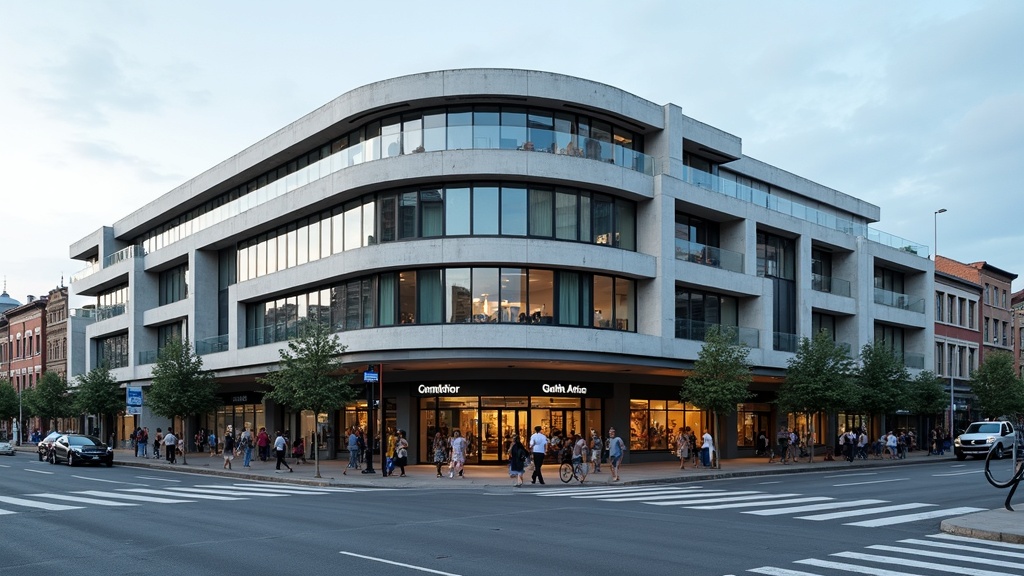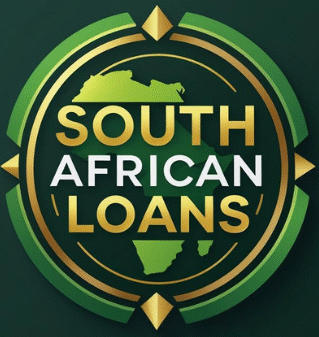Qualifying for a franchise loan in South Africa is a crucial step that many aspiring business owners consider when launching or expanding a franchise. The process can feel a bit complicated, especially without a clear roadmap. I want to help make things easier by guiding you through what lenders look for, the documentation you’ll need, and some hands-on advice that’s specific to the South African market.

Understanding Franchise Loans in South Africa
A franchise loan is a type of business financing that helps entrepreneurs buy into an established franchise brand. In South Africa, banks often offer this type of loan, some specialist finance providers, and occasionally large franchisors through in-house funding programs. Unlike general business loans, franchise loans are created specifically to cover franchise fees, setup costs, initial stock, and sometimes working capital.
Banks in South Africa often work closely with major franchise brands, making the lending process more streamlined for those businesses. This relationship lowers the risk for the lender since they know the franchise model is proven, and it helps first-time business owners tap into a business setup with built-in support and brand recognition.
Key Requirements for Qualifying for a Franchise Loan
Every lender has specific criteria, but most look at similar factors when reviewing your loan application. I’ve listed the most important ones here so you know what to expect before you start.
- Good Personal Credit Record: Lenders want to see responsible past behavior with debt. A healthy credit score and a history of paying bills on time are fundamental.
- Solid Business Plan: This should include cash flow forecasts, details about the franchise, your management skills, and a plan to make the business profitable. South African banks in particular appreciate clear and thorough planning.
- Relevant Experience: Experience in managing, running, or working in a business, especially in the sector of the chosen franchise, can have a big impact.
- Franchise Brand Approval: Sometimes, the franchisor must approve you as a qualified buyer before the bank even considers your application.
- Personal Contribution: Most lenders require you to put up a portion of the total investment (often 40-50%) from your own funds. This personal stake reduces risk for the lender.
- Security or Collateral: You may need to offer collateral, such as property, savings, or an asset, to secure the loan.
Meeting these requirements increases your chances of success and makes your application more appealing to South African lenders.
Step-by-Step Process to Qualify for a Franchise Loan
Based on my experience helping entrepreneurs, getting a franchise loan approved is often less confusing if you break it down into smaller, concrete steps:
- Do Careful Research: Look into different franchises and check out the initial costs involved. Consider which brands work best with South African banks and what industries you are comfortable with.
- Prepare Your Business Plan: Create a detailed business plan. Include your personal profile, CV, financial projections, marketing ideas, and information about the franchise.
- Check Your Personal Finances: Order a free annual credit report through a South African credit bureau (like TransUnion or Experian). If your credit isn’t great, work on improving it first.
- Build Up Your Contribution: Save or gather the required portion of your own funds. Demonstrating you have “skin in the game” gives the bank greater confidence in you.
- Build a Relationship with the Franchisor: Once you’ve chosen a franchise, get involved with the franchisor from the start. Many South African franchises have preferred partners for finance, and supportive franchisors may provide introductions or advice.
- Apply to the Right Lender: Reach out to banks or finance houses experienced in franchising. These institutions have specialist franchise units and often make the process easier.
- Submit the Application and Supporting Documents: Ensure your paperwork is thorough. Include all the documents the bank requests, such as business plans, financial records, proof of your contribution, franchise approval, and collateral documents.
Some entrepreneurs also explore crowdfunding. Here’s a breakdown of how crowdfunding works in South Africa and whether it suits franchise models.
Documents You Need for a Franchise Loan Application
South African banks are stringent on documentation. Here’s a checklist I use to make sure I’m ready when applying for franchise funding:
- Personal identification (South African ID, proof of address)
- Credit reports and personal balance sheet
- Detailed business plan, including cash flow forecasts
- Franchise agreement or letter of intent from the franchisor
- Company registration papers (if available)
- Bank statements and recent financials (if you own other businesses)
- Proof of unencumbered funds for your contribution
- Collateral documentation, if required
The more organized you are with your documentation, the faster and smoother your loan process usually goes.
Common Challenges When Applying for Franchise Finance
Even if you feel prepared, some hurdles can slow you down. Here are a few common stumbling blocks in the South African context, and my advice on how to manage them:
- Insufficient Personal Contribution: Many hopeful franchisees underestimate the amount of personal capital banks require. You may need to check in on personal loans, family investments, or selling an asset if you do not have enough saved.
- Insufficient Collateral: If you don’t own property or other assets, getting secured finance can be hard. Some lenders do offer unsecured options, but often charge higher rates. Exploring different banks may be helpful, as requirements do differ.
- Poor Credit Record: Any unpaid debts, judgments, or defaults can slow or even stop your application. Take steps to settle accounts or provide explanations for any blemishes in your credit history.
- Franchise Selection: Not all franchises are viewed as low-risk by lenders. Choosing brands with a proven local track record and good mentorship significantly increases your chances.
- Incomplete Paperwork: Forgetting a key document is one of the most common reasons applications stall. Make a checklist and double-check everything before submitting. If the bank requests more detail, respond quickly and thoroughly.
Cash Flow Management
New business owners sometimes overestimate how quickly profits will roll in after opening. South African banks pay close attention to cash flow projections, so be realistic with your sales forecasts and ensure that you factor in seasonal dips, franchise-specific expenses, and supplier payment terms. If you’re not comfortable with financial planning, professional guidance from an accountant can give a real boost.
Local Franchise Networks and Support
Many brands that operate in South Africa offer franchisee support and training, which banks like to see. I recommend selecting a franchisor that demonstrates active mentorship, as this kind of support can influence approval chances. There are also local organizations, such as the Franchise Association of South Africa (FASA), which offer networking, advice, and annual franchise expos worth checking out. You can also check online platforms and social media for events where experienced franchise owners and new entrants connect, providing a valuable community that shares best practices and tips for those starting out.
Advanced Tips to Improve Your Loan Application
Secure Pre-Approval Before Signing Anything: Obtain a provisional offer of finance before signing the final franchise agreement. This way, you’re not locked in if the bank won’t grant the full amount.
Work with a Franchise Finance Broker: Some business brokers specialize in franchise funding and can guide you through the process. They know exactly what paperwork to prepare and may expedite the approval process by working through their contacts.
Attend Franchise Discovery Days: Franchisors regularly offer sessions where you can meet current owners, hear about financial results, and even speak directly to lenders onsite. Showing you’ve made this effort tells the bank you’re serious about the business.
Plan for Contingencies: Lenders appreciate it when you have backup plans in place, such as alternate suppliers, temporary staffing solutions, or marketing strategies for slow periods. Explaining how you’ll cope with obstacles boosts your credibility as an applicant.
Present Your Qualifications Clearly: Ensure your experience and skills are visible in your business plan and interviews. Highlight any leadership, business management, or relevant industry experience you have, since this gives lenders more faith in your ability to succeed.
Stay Up to Date with Industry Trends: Demonstrating that you stay current with the latest news in franchising, or have made connections at industry seminars or webinars, helps banks see you are proactive and committed. Mention this in your plan or interviews if possible.
Frequently Asked Questions
Question: How much of my own money do I need to put into a franchise deal?
Answer: Most South African banks expect you to fund at least 40-50% of the total investment from your own resources, but some high-profile brands may get away with a little less if they have strong support or buyer demand.
Question: Is it possible to get a franchise loan without collateral?
Answer: Yes, but it can be much harder. Some banks offer unsecured business loans, but interest rates are higher, and requirements can be stricter regarding cash flow and your credit profile.
Question: Do I need experience in the sector to qualify for a franchise loan?
Answer: Experience is always helpful, but not always a dealbreaker. A strong, supportive franchisor and commitment to training can sometimes offset a lack of industry experience.
Final Thoughts on Qualifying for a Franchise Loan
Obtaining a loan to launch a franchise in South Africa is possible if you plan thoroughly, stay organized with paperwork, and understand what banks require. With careful research and the right support, both from the franchisor and your bank, owning a franchise business can become a reality.
Making sure your business plan is clear, your credit record is solid, and your documentation is complete will set you on the path to a successful franchise loan approval. The effort you invest upfront pays off greatly when your application moves smoothly, and you open your doors with confidence. If you stay committed, keep learning from others in the industry, and adapt your strategy when needed, you position yourself for long-term business success in the South African franchise market.

This is such a thorough and insightful guide! I appreciate how clearly you broke down the entire franchise loan process in South Africa, especially the step-by-step approach and the list of required documents. It’s really helpful to see both the common challenges and the advanced tips for improving a loan application. I’m curious, in your experience, how often do first-time franchisees successfully secure pre-approval before signing the franchise agreement, and does this significantly improve their chances with the banks?
Hi Hanna, thank you for taking the time to comment. First-time franchisees are first pre-approved by the Franchisor, and then they approach the finance house for funding pre-approval.
If your application is strong and meets the lender’s criteria, they will issue pre-approval for the franchise finance within a matter of weeks.
Securing a franchise loan seems like a process that requires not just financial preparation but also a clear understanding of how lenders view risk. One thing I find interesting is how much emphasis is placed on the business plan versus personal credit history. In your experience, which factor tends to weigh more heavily for approval? Also, do banks in South Africa treat franchise loans differently compared to general business loans, given that a franchise usually comes with a proven model?
Hi Slavisa. Thank you for the interesting questions. In my experience, lenders tend to lean more towards strong credit history than a strong business plan. The mere fact that the business operates under a franchise model is indicative of strong business controls and processes being in place.
South African Banks certainly afford greater ease of access to franchise loans than business loans. Most Franchise loans will not require collateral; however, business loans invariably require some form of collateral.